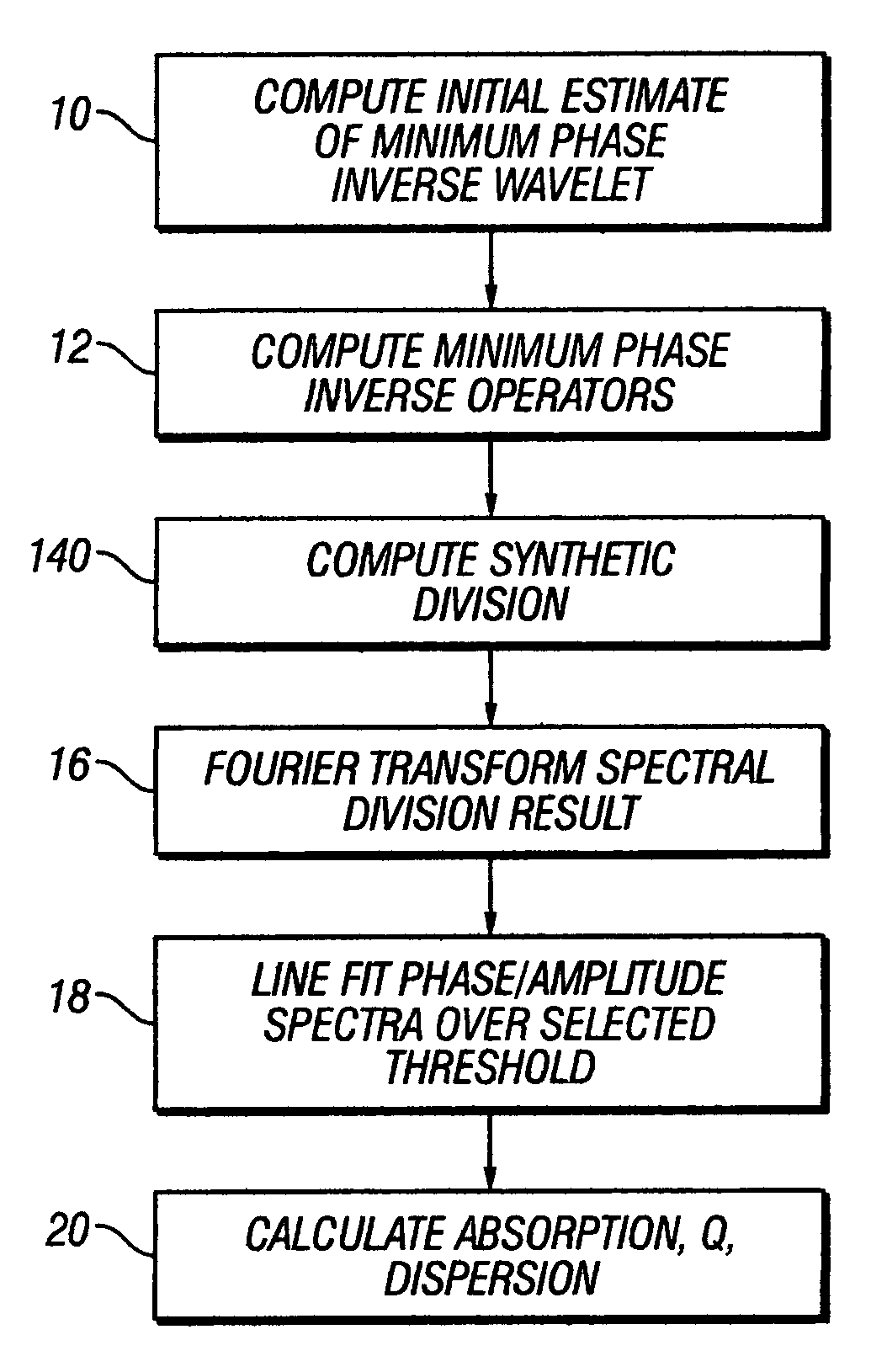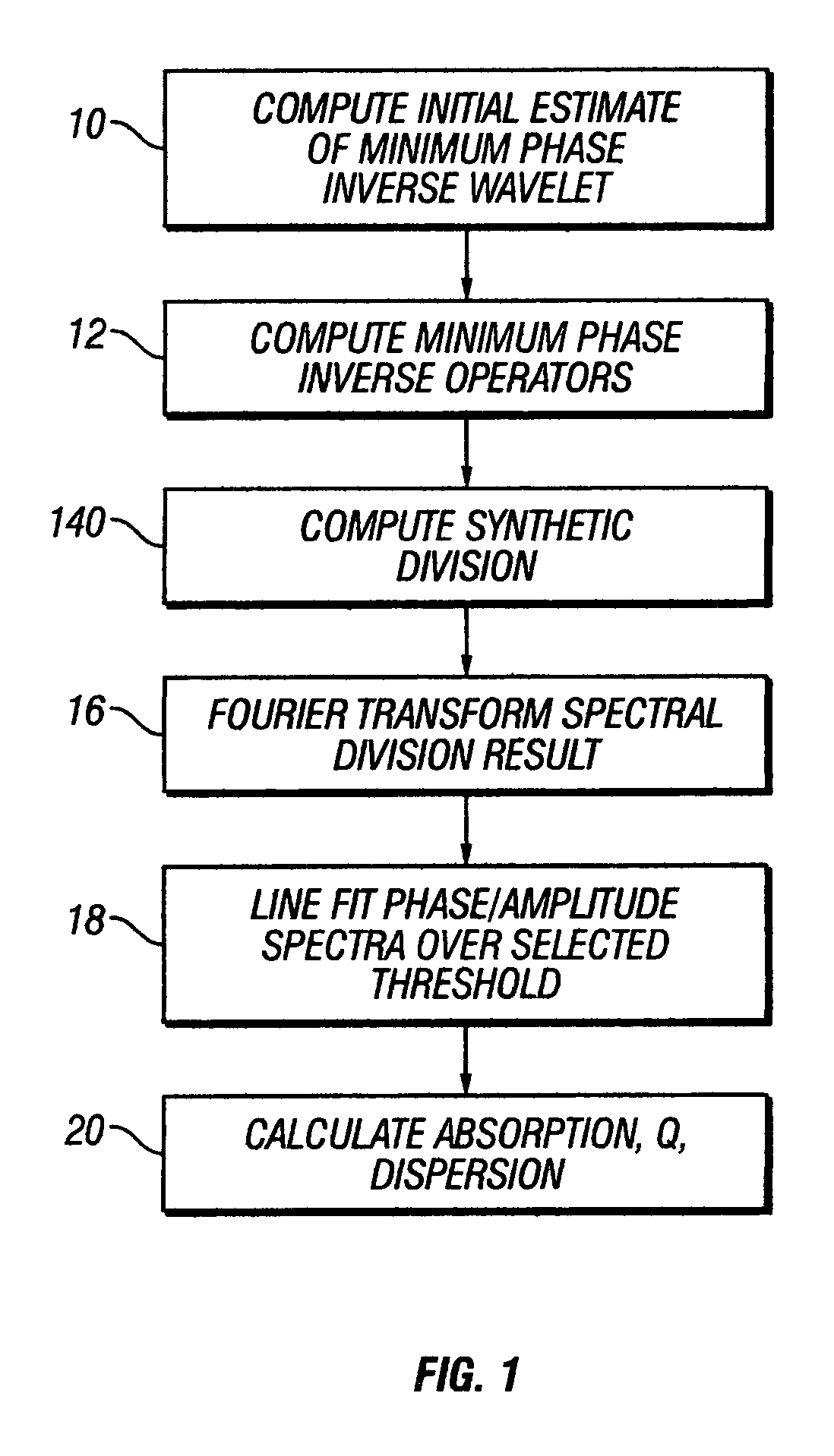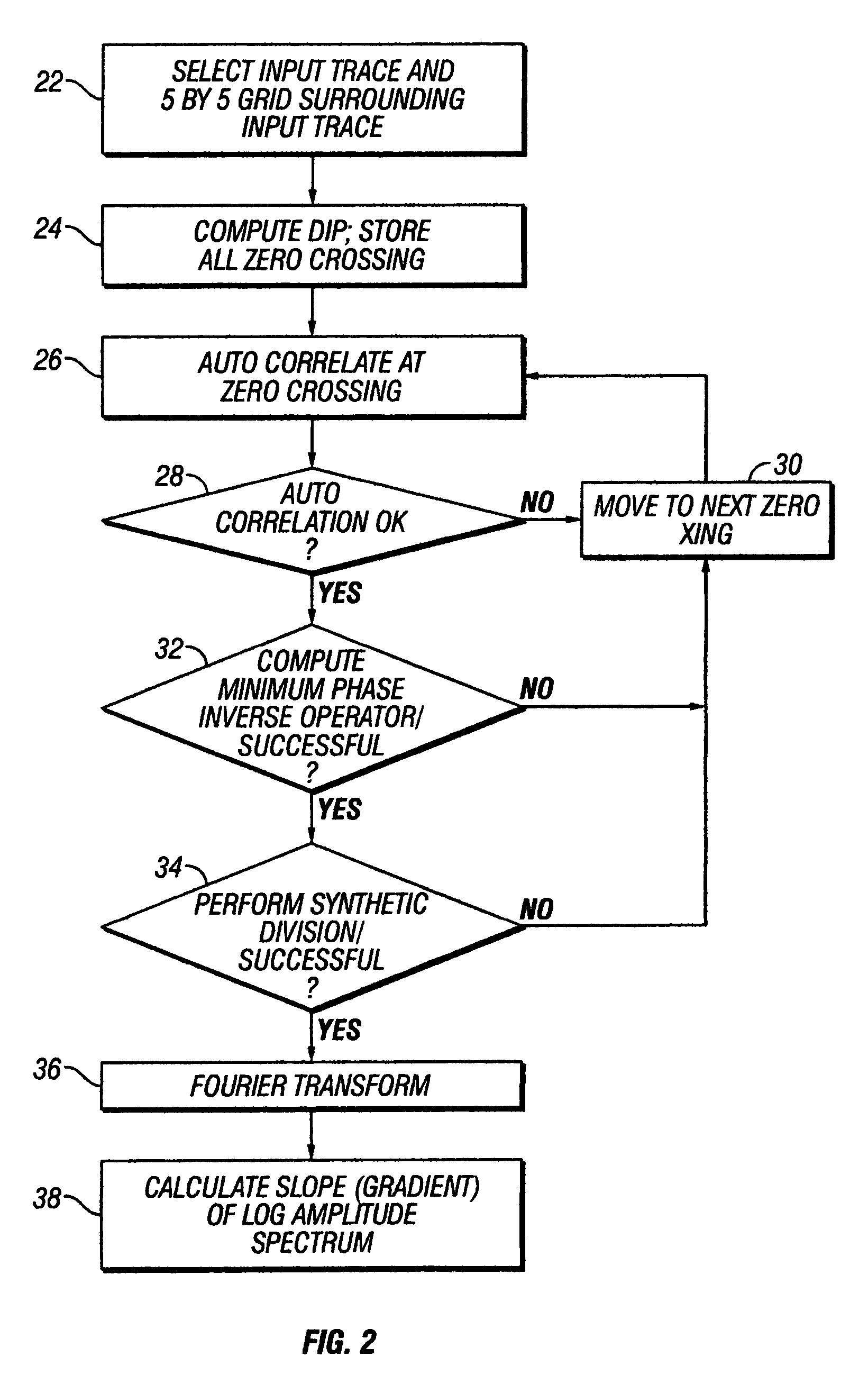Method for determining formation quality factor from seismic data
a technology of quality factor and seismic data, applied in the field of seismic data processing and interpretation, can solve the problems of reducing the resolution of seismic images that can be made from reflection seismic recordings, affecting the interpretation of such estimates, and noisy measurement over short intervals
- Summary
- Abstract
- Description
- Claims
- Application Information
AI Technical Summary
Benefits of technology
Problems solved by technology
Method used
Image
Examples
Embodiment Construction
[0027]A process according to the invention for determining the quality factor Q from seismic data begins with the assumption of a constant Q condition, that is, the quality factor Q is independent of the frequency, f. In this case, the amplitude spectrum of a seismic wavelet, represented by A0 (f) as it originates from a seismic energy source, will be changed to A1 (f) due to attenuation as shown in the following expression:
|A1(f)|=|A0(f)|·exp(−πft / Q) (1)
[0028]In equation (1), t represents the seismic travel time from the seismic energy source to the target zone of interest. The quality factor Q is estimated from the natural logarithm (ln) of the amplitude spectral ratio of the seismic wavelets estimated above and below the zone of interest: lnA1(f)A0(f)=-πf(t1-t0) / Q(2)[0029]where t1 and t0 represent seismic travel times to the bottom and top of the zone of interest, respectively. A particular problem with estimating Q from the log-amplitude spectrum of equation (2) results f...
PUM
 Login to View More
Login to View More Abstract
Description
Claims
Application Information
 Login to View More
Login to View More - R&D
- Intellectual Property
- Life Sciences
- Materials
- Tech Scout
- Unparalleled Data Quality
- Higher Quality Content
- 60% Fewer Hallucinations
Browse by: Latest US Patents, China's latest patents, Technical Efficacy Thesaurus, Application Domain, Technology Topic, Popular Technical Reports.
© 2025 PatSnap. All rights reserved.Legal|Privacy policy|Modern Slavery Act Transparency Statement|Sitemap|About US| Contact US: help@patsnap.com



